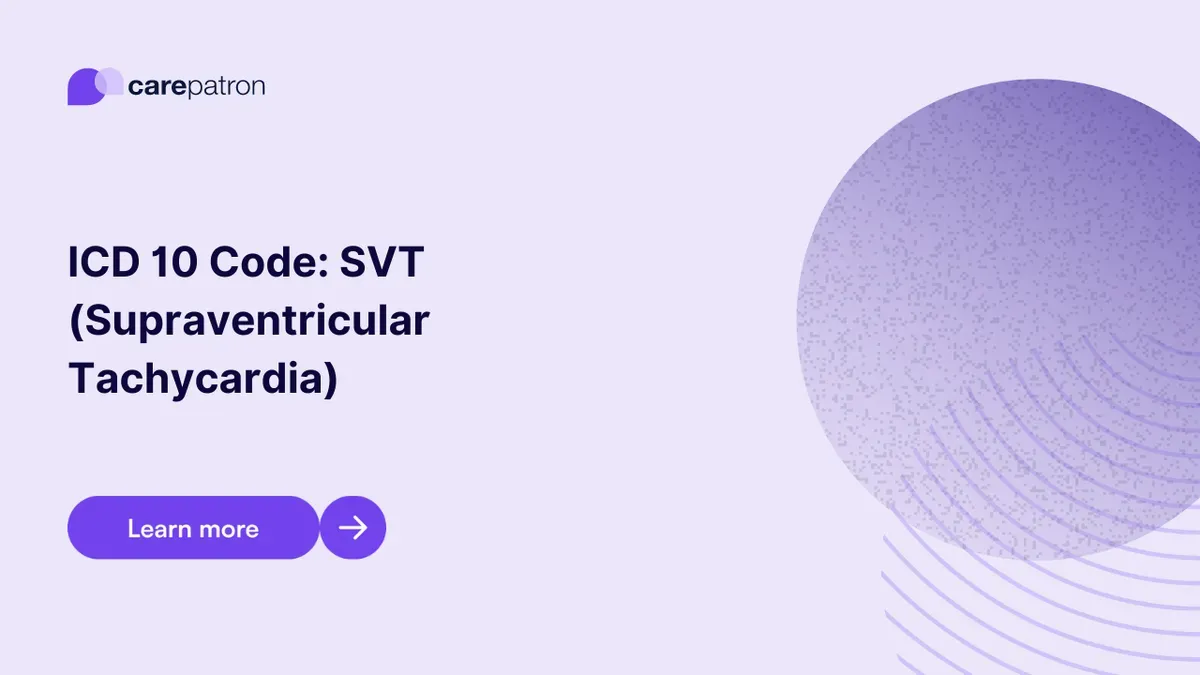
SVT (Supraventricular Tachycardia) ICD-10-CM Codes
Dive into the 2023 ICD codes for SVT. Grasp the codes, billability, and clinical relevance for this rapid heart rhythm disorder.
Use Code
Commonly asked questions
SVT can be triggered by stress, caffeine, alcohol, certain medications, and sometimes for no apparent reason.
SVT is diagnosed using an electrocardiogram (ECG), Holter monitor, and sometimes an electrophysiology study.
While SVT is generally not life-threatening, it can cause discomfort. It's essential to get a proper diagnosis and treatment to manage symptoms.
EHR and practice management software
Get started for free
*No credit card required
Free
$0/usd
Unlimited clients
Telehealth
1GB of storage
Client portal text
Automated billing and online payments
